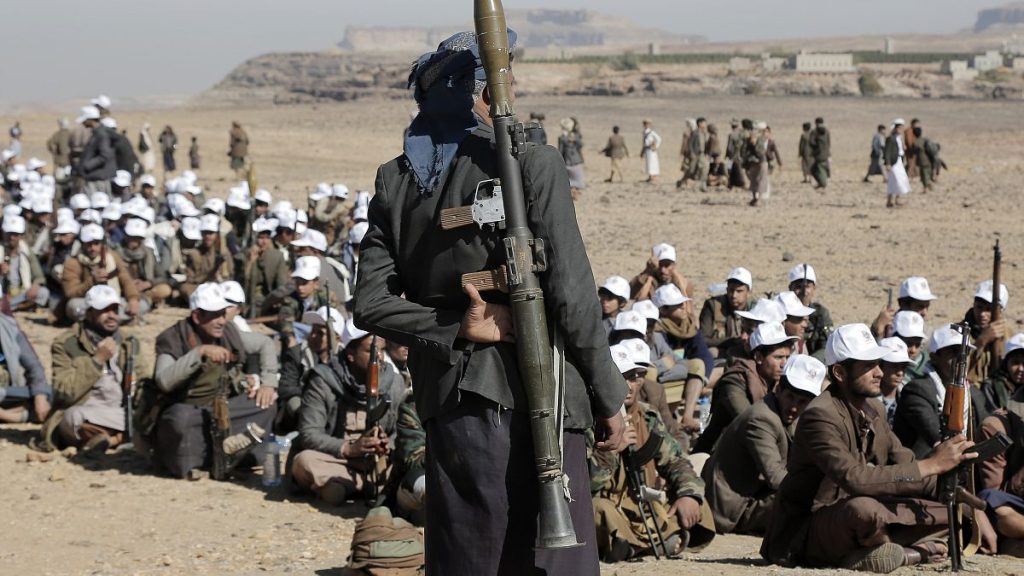The United Nations has taken the drastic step of suspending all official travel to areas controlled by Yemen’s Houthi rebels following the detention of seven more UN staff members. This brings the total number of detained UN personnel to 23 Yemeni nationals. The decision underscores the escalating security concerns for aid workers operating in the war-torn nation, impacting the delivery of crucial humanitarian assistance to millions of Yemenis in dire need. This latest incident is not isolated; the Houthis have a history of detaining UN staff, personnel affiliated with international organizations, and even individuals associated with the former US Embassy in Sanaa. The UN has strongly condemned these arbitrary detentions and called for the immediate release of all its staff, emphasizing the negative impact on their ability to provide vital aid in a country grappling with one of the world’s worst humanitarian crises.
The Houthi’s detention of UN personnel comes amidst a complex backdrop of conflict and political maneuvering. The rebels, who have controlled Yemen’s capital, Sanaa, since 2014, are engaged in a protracted war against a Saudi-led coalition backing the exiled Yemeni government. This ongoing conflict, now in its ninth year, has ravaged the country, resulting in widespread death and destruction and creating a humanitarian catastrophe. The Houthis’ recent actions, including attacks on shipping in the Red Sea during the Israel-Hamas conflict, have added another layer of complexity to the situation, drawing international condemnation and raising concerns about regional stability. The UN’s travel suspension signals a significant escalation in tensions and further hampers efforts to deliver aid to a population already on the brink.
The UN’s suspension of travel to Houthi-controlled areas reflects a growing pattern of harassment and intimidation targeting international organizations working in Yemen. The Houthis have increasingly cracked down on areas under their control, detaining dozens of individuals affiliated with aid agencies and other organizations. Their actions appear to be part of a broader campaign against those perceived to have Western ties, fueled by accusations of collaboration with foreign intelligence agencies and Israel. This campaign, often amplified through Houthi-controlled media, further complicates the operating environment for humanitarian organizations and exacerbates the challenges of delivering aid to those most in need. The UN’s decision to suspend travel highlights the precarious security situation and the difficult choices facing aid organizations operating in this volatile environment.
The ongoing conflict in Yemen, coupled with the Houthis’ recent actions, has created a precarious humanitarian situation. The war has killed an estimated 150,000 people, both fighters and civilians, and has displaced millions more. The resulting humanitarian crisis is considered one of the worst in the world, with millions facing severe food insecurity and a heightened risk of disease. The Houthis’ attacks on shipping and their detention of aid workers further exacerbate the crisis, hindering the delivery of essential aid and putting vulnerable populations at even greater risk. The UN’s suspension of travel, while necessary to ensure the safety of its staff, underscores the growing challenges of providing humanitarian assistance in a conflict-ridden environment.
Beyond the immediate humanitarian concerns, the Houthis’ actions have broader geopolitical implications. Their attacks on shipping in the Red Sea during the Israel-Hamas conflict raised concerns about regional stability and the potential for wider escalation. Their continued detention of UN personnel and crackdown on individuals with Western ties further strains relations with the international community and complicates efforts to find a political solution to the conflict. The recent decision by the US to reinstate a terrorism designation on the Houthis, while later reversed, highlights the ongoing tensions and the potential for further escalation in the region. These actions underscore the complex political landscape in Yemen and the challenges of achieving a lasting peace.
The UN is actively engaging with Houthi representatives to secure the release of its detained staff and to address the broader security concerns. However, the Houthis have yet to acknowledge the UN’s travel suspension or respond to calls for the release of their staff. This silence further underscores the challenges facing the international community in engaging with the Houthi rebels and finding a resolution to the ongoing crisis in Yemen. The situation remains fluid, and the UN’s ability to resume its crucial humanitarian work depends on the Houthis’ willingness to cooperate and ensure the safety and security of aid workers. The future of humanitarian assistance in Yemen hangs in the balance, dependent on a resolution to this tense standoff.














